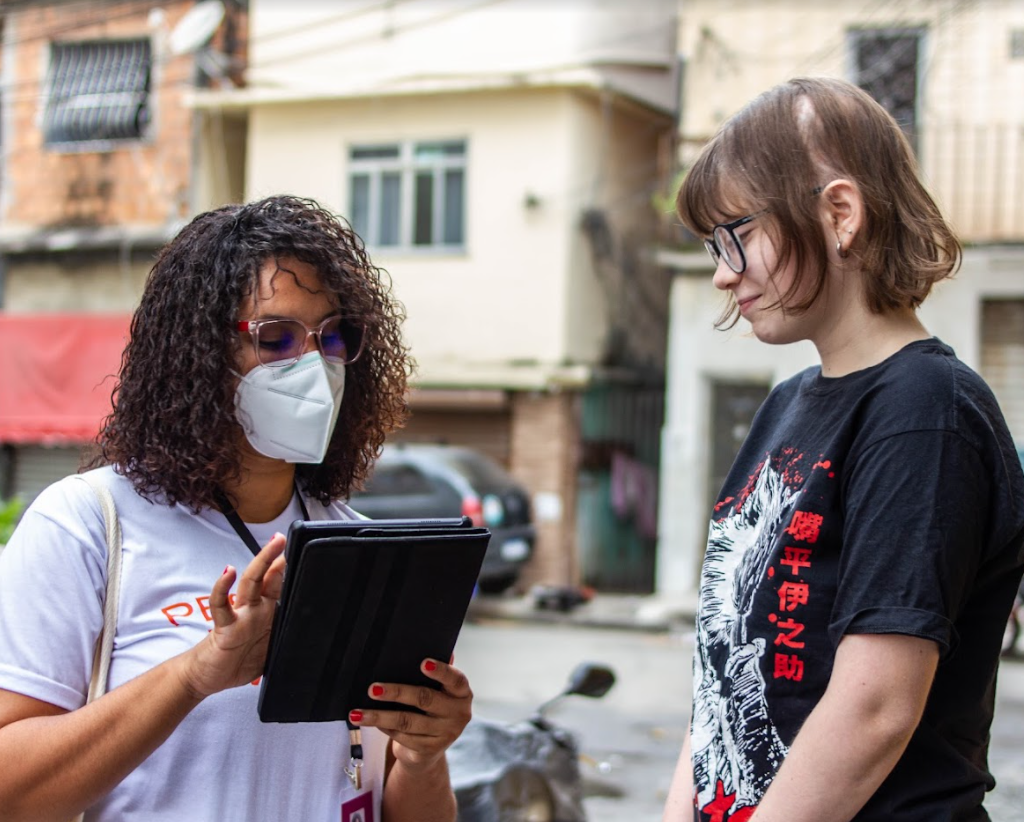Research conducted after mass vaccination supports studies of vaccine efficacy, coronavirus variants, and long-term disease effects
for every Luciana Pinto *
The #VacinaMaré campaign, which started at the end of July 2021, was a milestone in the fight against COVID-19 in the territory. With a high percentage of the population immunized in record time, Marie became the ideal place for Tidal Vaccinecollected data for a series of important studies that helped confront the Corona virus in the world.
Led by Fundação Oswaldo Cruz (Fiocruz), in partnership with Redes da Maré and the City of Rio de Janeiro, the research supports studies that address vaccine efficacy, coronavirus variants and the long-term effects of the disease (the so-called long-Covid, a disease already recognized and classified by the World Health Organization). ).
However, this is not a simple process. After all, about two thousand families living in Mari (about 6,500 people, including children) need to be monitored for at least two years.
This is where the team of bulkers and articulators, mostly county residents, who work with Community Health Agents (CHA) associated with family clinics come in. They are knocking from door to door, doing the work of informing the population of the progress of River Vaccine And invite them to collect blood and respond to interviews.
knuckle Elizabeth Gonsalves, 34, a resident of Robbins Vaz, is part of this team. It seeks research participants through home visits to residents who have not yet submitted a second blood collection for serological testing (the first was conducted in 2021). “As much as people don’t understand the research methodology, they understand the importance of a study like this one that Vuecruz conducted here,” he explains.
For Elizabeth, a geography student, having a team made up of residents is necessary not only to know the area, but also to get close to the people and understand the reality of the slum: “Mary brings together 16 different slums, with their cultures and characteristics, the presence of people who are sensitive to understand these characteristics It is a huge difference, mainly to the success of the research.”
The housewife is one of the participants with the joint Helena Maria Gomez da Silva, 67 years old. A resident of Parque União, she was in contact with research during the #VacinaMaré campaign and decided to join.
“I’ve been away from my grandchildren for a long time during the pandemic, and thanks to the vaccine, the situation is calmer and I can now live with my family and friends. This study is important to see if the vaccine will continue to protect us; that’s why I’m participating in it,” he says.
And she notes what the epidemiological scenario has already shown: “After the coronavirus vaccine is circulated, you don’t see anyone hospitalized or dying anymore. If it keeps happening, it’s with people who haven’t been vaccinated. Here at home I put everyone to the vaccination. It’s a son, Son-in-law, husband… I’ll take everyone!”
Key Partnerships
In addition to the mobilizers, community health agents (ACS) work in clarifying the population and in collecting materials for serological testing. Partnership with the Municipal Health Service is essential to the progress of the study, as family clinics (a reference in health for the population) have capillary capacity in the territory.
Nursing Technology Daniel Britto, 40, resides in Nova Holland, works in research and works as a health worker. The fact that the research takes place in Mare is special: “It is the only poor region in Brazil that has research of this scale; it says a lot about the importance of the study.”
For her, working to combat the coronavirus and help protect the population has a deeper meaning. “I lost my uncle at the beginning of the epidemic, in April 2020. Another uncle’s wife died the following week. In 2021, my brother and sister-in-law were accepted into CTI, I had coronavirus, my daughter and my whole family got infected… It was very difficult,” he says. .
According to Danielle, “Having the virus left very strong marks on me, so I am flattered to work on research, in something that will benefit not only society, but people from all over the world.”
He was also invited to participate in the study during the campaign #VacinaMaré, Nursing Technician Roberta GomezThe 40-year-old, who lives in Nova Holland, realizes that the research, as it happens in the favela, covers people who wouldn’t have access to studies like this: “It’s something that benefits everyone, and I’m very happy to be involved.”
At the age of 19 he was a student at Parque União Kaylane Evelin Alves It is an example of how COVID-19 worries people of all ages. At the invitation of her stepmother to participate in the research, she found the experiment interesting: “I have not seen this kind of scientific work here; it is a movement that encourages vaccinations, not only against the coronavirus, but also against other diseases.”
* Carolina Dias Collaboration

Are you part of the research or know someone who does?
It’s time for a second blood draw!
– Go to a health unit or Galpão Ritma (Rua Teixeira Ribeiro, 521 – Parque Maré) Monday through Friday, 9 a.m. to 4 p.m.
– Send your question to WhatsApp: 99924-6462
Want to learn more about research?

“Wannabe internet buff. Future teen idol. Hardcore zombie guru. Gamer. Avid creator. Entrepreneur. Bacon ninja.”

